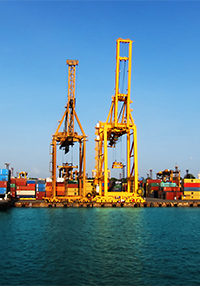Sri Lanka’s history with bi-lateral trade agreements demonstrates the need for more careful negotiation. This Insight explains how the tariff benefits of the India Sri Lanka FreeTrade Agreement (ISFTA) have been outweighed by the existance of non-tariff barriers (NTBs).
Verité Research recently conducted interviews with 22 members of civil society organizations to assess the quantity and quality of research on the subject of domestic workers’ rights in Sri Lanka. While measuring and evaluating current literature on domestic workers, this report sets out a four-pronged hypothesis on why domestic workers’ rights have not featured on the civil society agenda in Sri Lanka.
Verité Research recently conducted a survey amongst over 300 local domestic workers and their employers. The survey was conducted in the context of a serious dearth of data and information with regard to domestic workers who work in Sri Lanka. Using ILO Convention No.189 as a frame of reference, this report analyses the findings of the survey and contributes towards better understanding the socioeconomic and cultural factors that promote and prevent decent work conditions for domestic workers in the country.
The European Commission recently banned the import of Sri Lankan fisher-ies products for violating guidelines on Illegal, Unreported and Unregulated fishing. This Insight suggests that the ban was triggered by the behaviour of a small number of very large Chinese vessels run by a BOI registered company in Sri Lanka.
The government first raised international debt through bonds in October 2007. Since then several international bonds have been issued to feed the government’s twin demands: financing its spending and propping up foreign reserves. While this trend of foreign borrowing is on the rise, what is happening to the cost of borrowing? And what is the prognosis for the future?
By 2014, tax revenue from cigarettes accounted for over 4.9% of total government revenue. However, thus far, Sri Lanka’s tax adjustments have been ad hoc, and driven by political and bureaucratic discretion rather than a logical, transparent, and systematic policy.
The government estimates that by 2015 per capita GDP will quadruple from what it was in 2004. But this is a mirage: real incomes will not even double in that period. The mirage is created by counting in US dollars and effectively presenting nominal growth in GDP (increased prices) as real GDP growth (increased incomes).
In this Research Bulletin, we provide a detailed analysis of Sri Lanka’s trade performance during 2013 and the first quarter of 2014. The review highlights the external and internal driversthat shaped Sri Lanka’s external trade developments. The key challenges the country faces in terms of tweaking trade policy to meet the twin objectives of reducing trade deficit and increasing government revenue is discussed in detail. The analysis shows that reducing the trade deficit by curtailing imports may be feasible in the short run, but it will adversely affect government revenue and economic growth.
Variations in the tobacco excise tax affects Rs. 10s of billions in government revenue. Taxation and pricing has been inconsistent. The lack of a consistent method allows wide discretion to officials in determining the tax. Parliament should adopt a formula to keep taxation in line with national policy, treat stakeholders fairly, and prevent discretion from being abused.
Sri Lanka hopes to increase export revenue to USD 20 bn by 2020. This target is perceived as ambitious; but, compared to the country’s growth targets and the performance of regional peers, it is mediocre. This Insight explains that to be confident of setting and achieving ambitious export targets, Sri Lanka must go beyond symptomatic remedies and address the root causes of underlying problems with its export strategy.









